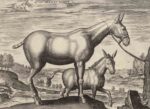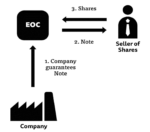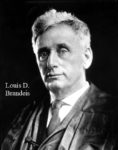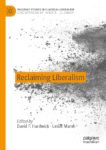This paper analyzes three contracts and shows that there is indeed a deeper democratic or Enlightenment classical liberal tradition of jurisprudence that rules out those contracts. The ‘problem’ is that the same principles imply the abolition of the employment contract, the contract for renting human beings, which is the foundation for the economic system that is often (but superficially) identified with classical liberalism itself. Frank Knight is taken throughout as the exemplary advocate of the economics of conventional classical liberalism.
Worker Cooperatives and Other “Cooperatives”
When is a “Coop” not really a cooperative? The short answer is whenever the actual activity of the “cooperative” is not carried out by the members but by employees. The problem is, of course, not in cooperation per se but in the hiring, employing, renting, or leasing of people to carry out the supposedly “cooperative” activities of the “cooperative.”
Democratic Ownership: Scale Through Leveraged Conversions
One of the problems that cooperatives face is that they do not have a standard gradual conversion mechanism but are generally established as new business startups or by an all-at-once conversion of a conventional company to a cooperative. This paper describes such a conversion mechanism.
Critical Analysis of Different Forms of Employee Ownership
From the 1970’s, there has been almost a half-century of development of employee-owned firms. There has been a wide variety of legal/capital structures that have been tried but too little analysis of which legal forms work or don’t work over the longer term, e.g., the transition from one generation to the next generation of employee-owners. This paper provides a critical analysis of the major forms. The emphasis is the lack of learning between the different forms. The same problems keep recurring even though solutions are known.
Trespassing against the Happy Consciousness of Orthodox Economics
This is Chapter 1 in my book: Ellerman, David. 1995. Intellectual Trespassing as a Way of Life: Essays in Philosophy, Economics, and Mathematics. Lanham MD: Rowman & Littlefield.
This first chapter addresses the problems of trespassing involved in understanding the arguments presented in the first five “controversial” chapters of the collection. These chapters challenge the whole idea of the employer-employee relationship that is the institutional basis for our present version of a private-property market economy. The problems of trespassing against fundamental orthodoxy in the social and moral sciences are of a completely different order of magnitude than the problems of trespassing in the natural and mathematical sciences.
Talk Slides about European ESOP
These are slides from a talk about the European ESOP (Employee Stock Ownership Plan) developed by the Institute for Economic Democracy in Ljubljana, Slovenia.
Worker Cooperatives and other so-called “Cooperatives”
Most cooperative organizations today do not exemplify any cooperative activity; non-worker cooperatives do not represent any cooperative activity of the members since the only joint activity of the organization is carried out by employees. The idea that cooperatives are democratically governed does not apply to non-worker cooperatives (based on the employment relation) since the members are not choosing the managers or governors of their own activity but of the activity of the people working in the cooperative.
European ESOP
The American Employee Stock Ownership Plan or ESOP is a leveraged buyout mechanism so that the employees in a company can, in effect, do a leveraged buyout of part or eventually all of their own company. ESOP is one of the most successful and unifying models for employee ownership in the world. The purpose of this paper is to analyze the main features of the US ESOP model and to define a technical description of the European ESOP, which builds on the good features of the US model and improves the flawed features.
Less-Known Supporters of Workplace Democracy
his paper, published as an editorial in the Journal for Participation and Employee Ownership collects together extensive quotations and extracts from 19th and 20th century thinkers who were little-known for being supporters of workplace democracy.
Reclaiming Democratic Classical Liberalism
The argument shows that the classical liberal endorsement of sovereign individuals acting in the marketplace generalizes to the joint action of individuals as the principals in their own organizations and associations.








